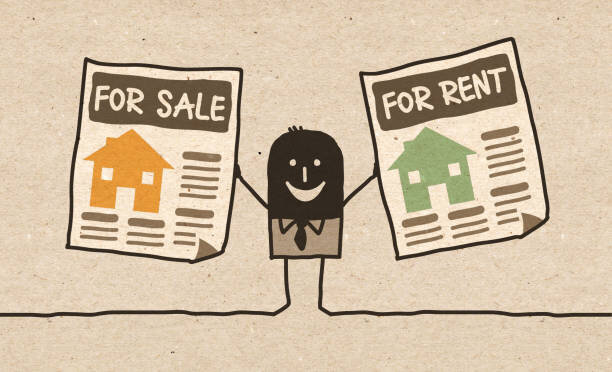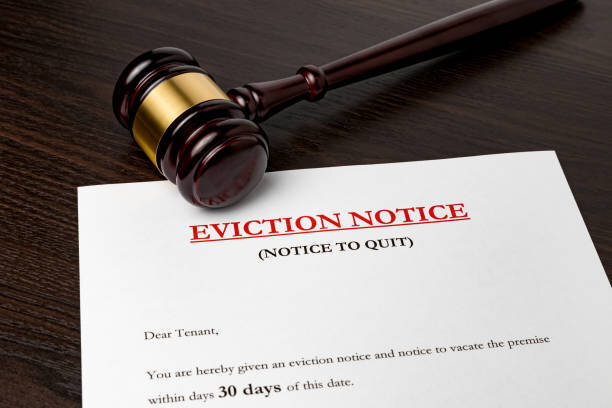
I Inherited a House, What To Do? – Should I Rent or Sell in Philadelphia?
Understanding Your Situation and Emotions
In the intricate world of real estate, the decision-making process when you inherit a house in Philadelphia is far from straightforward. In fact, it’s more like navigating a maze filled with legal complexities, financial considerations, and emotional attachments. As the inheritor, you’re probably grappling with numerous questions and concerns:

 How will this inheritance impact my financial situation?
How will this inheritance impact my financial situation?
 Should I explore the option of renting or selling the property?
Should I explore the option of renting or selling the property?
 What strategies can I use to minimize capital gains and property taxes?
What strategies can I use to minimize capital gains and property taxes?
 Are there emotional factors at play due to the sentimental value of the property?
Are there emotional factors at play due to the sentimental value of the property?
This blog aims to serve as your guide through this intricate journey. We’ll dive into the financial and emotional aspects of inheriting a house in Philadelphia, exploring the pros and cons of renting or selling. Our goal is to empower you with the knowledge you need to make a well-informed decision that aligns with your financial goals and emotional considerations.
I Inherited a House: The Fundamentals
Inheriting a house is a significant life event, and it’s essential to start with the basics.
The Legal and Financial Implications
When you inherit a house in Philadelphia, there are various legal inheritance tax and financial implications to consider. The property may be subject to estate taxes, and you may need to delve into federal estate taxes. Consultation with a family attorney or a financial advisor is highly recommended during this phase.

The legal and financial implications are crucial and cannot be overstated. Estate and inheritance taxes and property laws can be complex, and seeking professional guidance is vital. A family attorney can help you understand the legal processes involved, ensuring that all aspects of the various inheritance taxes are managed correctly.
Assessing the Property’s Financial Status

A meticulous evaluation of the property’s financial standing is crucial. Is there an existing mortgage or any other outstanding debts already associated with the property? You’ll need to decide how to manage these financial obligations. Additionally, understanding the current market value of the house is essential, especially when it comes to potential appreciation.
Start by obtaining a clear picture of the property’s financial situation. This includes identifying any existing mortgage, outstanding debts, and property taxes that need to be addressed. Furthermore, it’s important to understand the fair market value of the inherited property, which can impact your decision to rent or sell.
Capital Gains Taxes: Minimizing the Burden
Let’s delve into the complexities of capital gains taxes and explore how to minimize this financial burden on new owners.
Understanding the Tax Basis
The tax basis of the inherited property is generally its fair market value at the time of the previous owner’s passing. If you plan to sell, this establishes the inherited home’s equity initial value for calculating capital gains tax.

Making Smart Improvements
Consider making improvements to the property before selling, as these can increase its market value. Consult with a real estate agent to determine which improvements are likely to yield the best returns.
Primary Residence Exclusion
If you’ve used the inherited house as your primary residence for a certain period, you may be eligible for the primary residence exclusion, which can reduce your capital gains tax.
Consult a Tax Advisor
Consult with a tax advisor or financial expert who specializes in real estate transactions. They can provide guidance on minimizing capital gains tax.
Property Taxes: An Ongoing Responsibility
Property taxes are an ongoing financial responsibility that you’ll need to address when you inherit a house.

Regular Property Assessments
Periodically assess the property’s market value. This can help ensure that you’re not overpaying on property taxes.
Understanding Tax Implications
Property tax laws can be complex and vary by location. Understand the local property tax laws and any potential property tax breaks you may be eligible for.
Appealing Property Tax Assessments
If you believe your property tax assessment is inaccurate, you may have the option to either pay taxes or appeal it. Consult with a tax advisor to determine if an appeal is appropriate.
Mortgage Payments: Existing Debts
In many cases, an inherited house may come with an existing mortgage. Understanding how to manage mortgage payments and other assets is essential.

Making Mortgage Payments
If there is an existing mortgage on the property, renting can help cover the interest rate, and mortgage payments and relieve you of that financial responsibility.
Second Mortgage Considerations
If there’s a second mortgage on the property, it adds another layer of financial complexity. Evaluate the terms of the second mortgage and how it impacts your decision to rent or sell inherited property.
Reverse Mortgage: A Unique Consideration
A reverse mortgage loan is a financial tool worth considering when you inherit a house, especially if you plan to keep the property as a primary residence.

Understanding Reverse Mortgages
Homeowners aged 62 or older can utilize a reverse mortgage to transform their home loan and equity into accessible cash. It’s crucial to comprehend the implications of a reverse mortgage on your financial situation.
Rental Property and Reverse Mortgage
If you’re considering renting the property, explore how a reverse mortgage might impact interest rate, monthly payments, your ability to generate rental income, and your overall financial strategy.
Exploring Your Options: Renting or Selling
Let’s dive into the two primary options available when you inherit a house: renting or selling.
Renting the Inherited House: Pros and Cons
Renting the property can be an attractive choice for generating a source of passive income. However, it also comes with its own set of advantages and disadvantages:
Pros of Renting

- Steady Monthly Income: Renting out the property provides you with a consistent source of monthly income, which can be a significant advantage for your financial goals.
- Preserving the Property: Renting the house can help in maintaining the property’s condition. Over time, this can potentially lead to appreciation in its value.
- Tax Benefits: There are potential tax advantages associated with renting a property. It’s advisable to consult with a financial advisor to fully comprehend and utilize these benefits.
- Mortgage Payments: If there is an existing mortgage on the property, renting can help cover the mortgage payments and relieve you of that financial responsibility.
Consistency in your financial situation is one of the key advantages of renting. The steady monthly income generated can provide financial stability and support your financial goals. Additionally, renting can help preserve the property, which may be appreciated over time.
Cons of Renting
- Property Management: Managing a rental property can be time-consuming. It involves responsibilities such as addressing tenant issues, property maintenance, and dealing with vacancies. Being prepared for these potential challenges is crucial.
- Property Management: Managing a rental property can be time-consuming. It involves responsibilities such as addressing tenant issues, property maintenance, and dealing with vacancies. Being prepared for these potential challenges is crucial.

- Limited Access to Cash: Renting the property may tie up your investment in real estate, reducing your immediate access to cash for other financial opportunities.
- Tenant Challenges: Dealing with difficult tenants or property damage can be stressful and costly. You need to be prepared for these potential challenges when renting.
- Risk of Vacancy: Vacancies in rental properties can result in a loss of income and additional expenses for marketing and maintenance.
Despite the financial advantages, renting can be demanding in terms of property management. Handling tenant issues, maintenance, and dealing with vacancies can be time-consuming. Moreover, opting to rent the property may limit your immediate access to cash for other investments or financial needs.
Selling the Inherited House: Pros and Cons
Selling the inherited house is another viable option, and it also presents its own set of advantages and disadvantages:
Pros of Selling
- Lump Sum Payment: Selling the property provides you with a lump sum of cash, offering immediate access to a substantial amount of money that can be invested elsewhere.
- Simplified Finances: It simplifies your financial situation by eliminating the responsibilities of property management, including tenant concerns and maintenance.

- No Property Tax Obligations: Once the property is sold, you’ll no longer be responsible for property taxes associated with it.
- Investment Opportunities: The proceeds from the sale can be invested in other ventures or opportunities that align with your financial goals.
The significant advantage of selling is the lump sum payment that offers immediate access to a substantial amount of cash. This financial freedom allows you to invest the money as you see fit. Additionally, selling simplifies your financial and tax situation, by eliminating property management responsibilities and property tax obligations.
Cons of Selling
- Capital Gains Tax: Selling the property may lead to capital gains tax obligations, which can reduce your overall profit. Exploring strategies to minimize this tax is essential.
- Emotional Attachment: If you have a strong emotional attachment to the property, selling can be emotionally challenging. The sentimental value of the house might make it difficult to part with.

- Market Conditions: The real estate market’s conditions can impact the selling price. It’s essential to assess the current market status before making a decision.
- Costs of Sale: The process of selling a house involves costs such as real estate agent commissions, closing costs, and potential repair expenses.
One of the primary disadvantages of selling is the potential capital gains tax, which can reduce your overall profit. Overcoming the emotional attachment to the property can also be challenging. It’s crucial to assess the current market conditions and be prepared for the costs associated with the sale.
The Decision-Making Process: Weighing Your Options
Consultation with Financial Advisors
Given the complexities of the decision to rent or sell an inherited house, consulting with financial advisors can provide invaluable insights into financial decisions. They can help you decide and align your choice with your financial goals.

Financial Goals and Aspirations
Consider your long-term financial goals. Do you need immediate access to cash for other investments, or is generating a consistent source of passive income more in line with your aspirations?
Tax Implications
Explore the tax implications of both options. Selling and renting have different tax considerations, and minimizing your tax obligations is a crucial aspect of your decision.
Conclusion: An Informed Decision
In conclusion, the decision to rent or sell an inherited house in Philadelphia is complex and deeply personal. It involves intricate legal and financial considerations, along with emotional attachments. Ultimately, your choice should be guided by your unique financial goals, tax strategies, and the sentimental value the property holds.
Don’t underestimate the emotional side of this decision. Engage in open discussions with your family, especially if other heirs are involved, and consider the cherished memories associated with the property. Seek professional guidance and legal help to navigate the legal process and financial complexities.

Remember, this is not merely a financial decision; it’s a choice that impacts your family’s legacy and your own financial future.
Check out our blog: What Happens When You Inherit a House in PA?
Additional Considerations: Long-Term Tenants and Family Matters
While the decision to rent or sell an inherited house is a significant aspect, there are more factors to consider. Long-term tenants and family dynamics play essential roles.

Long-Term Tenants
If your inherited property has long-term tenants, it’s essential to consider their situation and rights. Selling the property may necessitate changes in their living arrangements.
Consult with a real estate attorney to ensure a legal and ethical transition when dealing with long-term tenants.
Family Matters
Inheriting property can sometimes lead to complex family dynamics, especially if multiple heirs are involved. Engaging in open and honest discussions when siblings inherit together is advisable to ensure an equitable distribution and address everyone’s concerns.
A family attorney can facilitate these discussions with other heirs, making sure that the inheritance is distributed fairly and that all family members’ interests are respected.
Navigating the Philadelphia Real Estate Market
In the decision-making process of renting or selling an inherited house, the local real estate market plays a pivotal role. Explore these market-related factors before finalizing your choice.
Property Demand

The demand for rental properties in Philadelphia can vary based on factors such as the time of year and the economic climate. Research the current market conditions to make an informed decision.
Real Estate Trends
Keep an eye on Philadelphia’s real estate trends and cycles to gain insights into property appreciation or depreciation. This information can be valuable when deciding whether to sell or rent.
Local Regulations
Philadelphia has specific regulations for landlords and property owners. Ensure that you’re familiar with the legal obligations and responsibilities associated with renting out a property in the city.
 Conclusion: Your Decision Matters
Conclusion: Your Decision Matters
The decision to rent or sell an already inherited home or house in Philadelphia is a significant one, with long-lasting consequences for your financial future and family dynamics. Take your time to weigh the pros and cons, consider the emotional value, and consult with professionals.
Ultimately, your decision should respect your financial aspirations and preserve the sentimental value of your inherited property. This is your choice, and it’s crucial to make it a decision that aligns with your unique circumstances and goals. Your future and your family’s legacy are at stake, so make it count.
For a Deeper Dive: Explore pricing strategies, tax insights, and more in our dedicated guide, How to Price Your Inherited Home in Philadelphia for Sale.
For expert advice and a seamless process in selling your inherited house, Recommended Home Buyers is here to assist you. Our team specializes in providing tailored solutions for inherited properties, ensuring that you make the most informed decision. We understand the unique challenges that come with inheriting a property, and we offer a hassle-free solution.

You can sell your inherited house or property to us as-is, without the need for costly repairs or paying a real estate agent to list the property on the market. You won’t have to worry about closing costs or hidden fees. Our straightforward process simplifies the sale of your inherited property. To get started, all you need to do is complete our online form on our website. We’ll take it from there, providing you with a fair and competitive offer, and ensuring a smooth and stress-free transaction.
